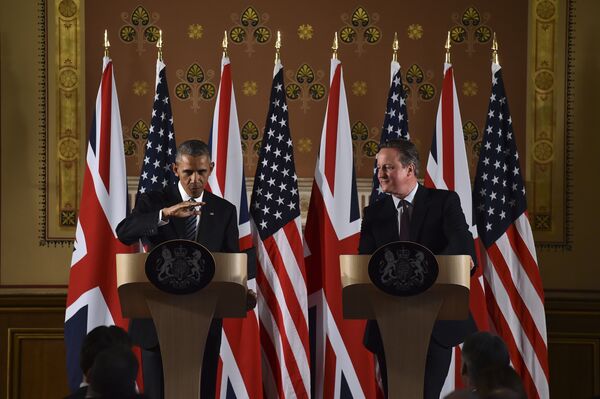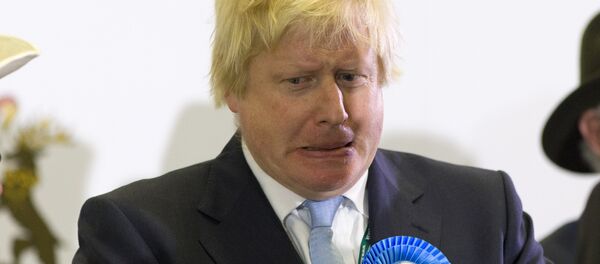UK voters were asked in a recent poll, whether or not it was "appropriate" for Obama to express a preference with regards to Britain's vote in the upcoming EU Referendum.
Only 35% of respondents agreed with that statement, with a massive 53% saying it was "inappropriate" — despite that, the President's net approval rating remains unchanged at +56.
Public to Obama: we love you, but stay out of EU debate – https://t.co/LE6zBKxa9k pic.twitter.com/0wl0wOItf7
— YouGov (@YouGov) April 23, 2016
Coinciding with his visit to the UK, President Obama published a controversial, but impassioned plea for UK voters to remain in the European Union. Writing in The Telegraph newspaper, he said:
"The European Union doesn't moderate British influence — it magnifies it. A strong Europe is not a threat to Britain's global leadership; it enhances Britain's global leadership. The United States sees how your powerful voice in Europe ensures that Europe takes a strong stance in the world, and keeps the EU open, outward looking, and closely linked to its allies on the other side of the Atlantic. So the US and the world need your outsized influence to continue — including within Europe."
The President also spoke about the so-called "special relationship" between the USA and Britain, hinting that it could be damaged irreparably by a vote to exit the EU in June.

Mr Obama's pro-European plea sparked angry responses from a number of high profile advocates of a 'Brexit', not least the Conservative London Mayor, Boris Johnson:
"For us to be bullied in this way, I don't want to exaggerate, for people to say we are going to be unable to cope on our own is absolutely wrong."
Of course, this is not the first time that Mr Obama has intervened in a British constitutional debate; during the 2014 Scottish independence referendum, he made a similar plea — albeit more euphemistically worded — that the United Kingdom ought to remain "united."
With just over two months before Britain goes to the polls to vote on its continued role in the European Union, campaigners on both sides are growing increasingly fractious.
The 'Leave' campaign in particular have cried foul over several interventions sparked by the UK Government; from the pro-EU leaflet sent to every home in the UK, to last week's Treasury document forecasting a cost of US$6,200 per household in the event of a "leave" vote.
The referendum on Britain's membership of the EU will take place on June 23rd.



